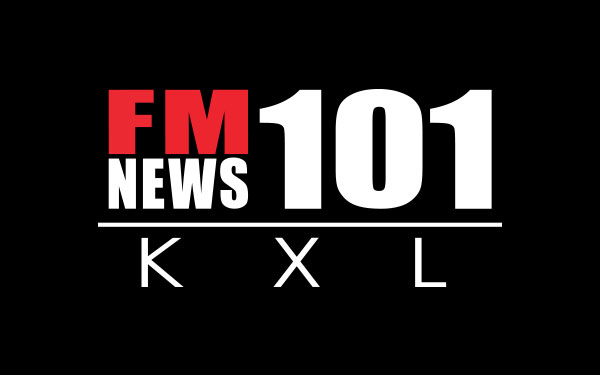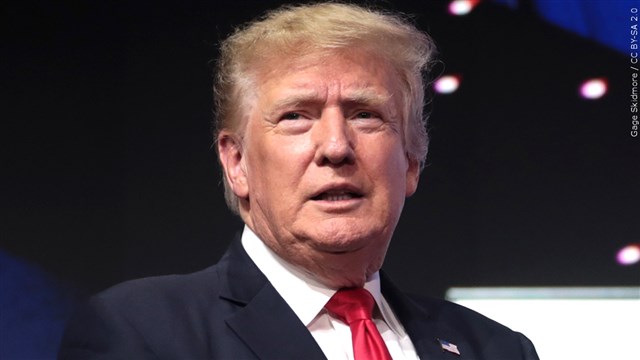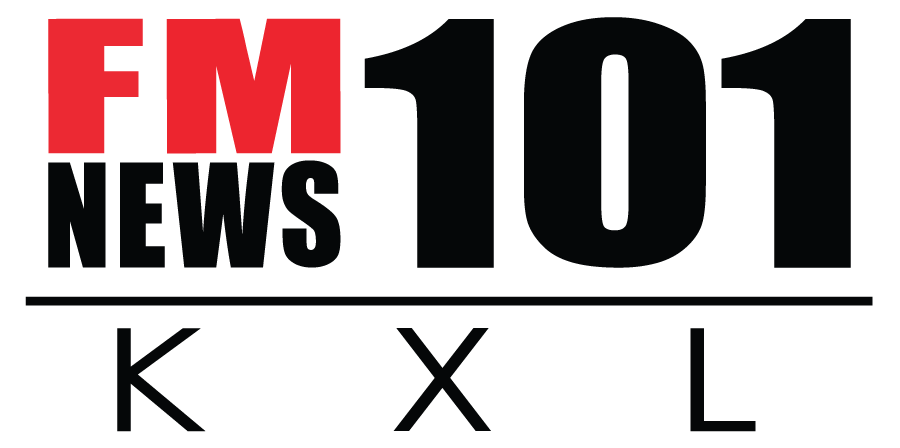Details, discourse and dropouts: A weekly roundup on potential 2020 field

ANNECORDON/iStock(WASHINGTON) — For the first time in 2019, this week saw more potential 2020 presidential candidates remove themselves from the running than join the race, with former New York City Mayor Michael Bloomberg, Sen. Sherrod Brown, D-Ohio, former Attorney General Eric Holder, Sen. Jeff Merkley, D-Ore., and even Hillary Clinton all saying that they would not launch campaigns.
But even with this week’s exits, two candidates did announce campaigns: Washington Gov. Jay Inslee and former Colorado Gov. John Hickenlooper. They are the race’s first governors and upwards of 10 more people, most notably former Vice President Joe Biden and former U.S. Rep. Beto O’Rourke, continue to wait in the wings.
Here’s the weekly candidate roundup:
Michael Bennet (D)
In a profile in The Atlantic, the Colorado senator explained his relatively slow walk towards a potential presidential campaign, even as others have run into the race.
“Part of it is that I haven’t spent my whole life thinking about running for president,” he said in the story. “I’m surprised enough to be in the Senate. I’m surprised to have been in the Senate for a decade. But I have really strong feelings about where we are, and where we went wrong over the last 10 years.”
Bennet will travel to New Hampshire Friday “as he considers whether to enter the race for president,” according to a press release sent earlier this week. His trip includes a meeting with City Year members in Manchester, a town hall in Jaffrey and a house party in Concord.
Joe Biden (D)
Multiple news outlets reported this week that Biden’s presidential plans are nearing completion and an official campaign launch is expected to occur in April.
The New York Times reported that, among other steps being taken, one of Biden’s strategists has been alerting other potential candidates that the former vice president will enter the race.
Next Tuesday, Biden will deliver the keynote address International Association of Fire Fighters legislative conference in Washington. The Times had reported that the IAFF is prepared to support him should he enter the primary.
Michael Bloomberg (D)
Bloomberg announced Tuesday that he will not run for president, explaining that while he believes he could defeat President Donald Trump in the general election, he is “clear-eyed about the difficulty of winning the Democratic nomination in such a crowded field.”
In a column posted to his news organization’s website detailing his decision, the billionaire, former New York City mayor wrote that he believes he can accomplish more in the next two years outside of politics than through a campaign.
“I know there’s much more we can accomplish over the next two years, but only if we stay focused on the work and expand upon it,” Bloomberg wrote. “And the fact is: A national presidential campaign would limit my ability to do that.”
Cory Booker (D)
In a recent radio interview, Booker spoke about issues important to him, like criminal justice reform, health care and technology, and described the importance of building consensuses, rather than alienating political adversaries.
And in the wake of last year’s bipartisan First Step Act, addressing criminal justice reform, Booker introduced additional legislation on the subject Thursday to reduce mandatory minimum sentences for non-violent drug offenses and limit federal employers’ ability to probe job applicants about their criminal histories.
Sherrod Brown (D)
Brown exited the 2020 presidential conversation Thursday with an announcement that he will remain in the Senate to “continue his fight for workers.”
In a press release, the senator from Ohio wrote that he and his wife have “seen candidates begin taking up the dignity of work fight, and we have seen voters across the country demanding it — because dignity of work is a value that unites all of us.”
“It is how we beat Trump, and it is how we should govern. That’s why I’m confident it will continue to be a focus for Democrats in 2020, and I plan on making sure that happens,” Brown continued, adding that he will “keep calling out Donald Trump and his phony populism” and “fighting for all workers across the country.”
Steve Bullock (D)
Bullock talked-up the work of his fellow state executives while on a trip to Iowa for a National Governors Association meeting Monday.
“Fundamentally, governors are on the front lines, meaning that this can’t just be about speeches or tweets,” the Montana governor and NGA chair said. “We actually have to get things done. We’re accountable to the people that we serve. So we have to figure out ways to actually make government work. And I think that is a lot different than what we see in Washington, D.C.”
As he has in the past, Bullock explained that his focus remained on Montana’s ongoing legislative session and was not ready to make a decision about the 2020 race.
Pete Buttigieg (D)
In an interview with CNN, the South Bend, Indiana mayor said that he felt Democrats had “failed the industrial Midwest” and that the party’s campaigns had to “talk about the lived, every day experience of people in their lives across America,” rather than focusing solely on Trump.
Earlier this week in Iowa, Buttigieg explained his belief that the wide presidential field was advantageous for him and other national newcomers, and continued to argue that his executive experience as mayor shouldn’t be discounted.
“I think when you’re a mayor of a city, really of any size, you have that on-the-ground, front-line government executive experience that’s so so relevant, understanding not just how to capably run an administration or establish good policies but also to bring people together and how to call people to their highest values when times get tough,” he told the The Gazette of Cedar Rapids.
On Friday, Buttigieg will attend a New Hampshire Institute of Politics “Politics and Eggs” breakfast, and will be interviewed as part of the Texas Tribune’s South by Southwest “Conversations About America’s Future” in Austin, Texas on Saturday.
Julian Castro (D)
The former secretary of Housing and Urban Development told CNN that he is proud that his Latino heritage “presents an opportunity to bring new people into the fold who haven’t been involved” in politics.
“I think what you’re going to see is that more and more Latinos are going to come out that haven’t before,” he said.
On Sunday, Castro will be interviewed as part of the Texas Tribune’s South by Southwest “Conversations About America’s Future” in Austin, Texas.
Hillary Clinton (D)
Clinton said she is “not running” but is “going to keep on working and speaking and standing up for what [she] believes,” on Monday in an interview with News 12 of Westchester, New York.
In the aftermath of the interview however, New York Times reporter Maggie Haberman tweeted that according to “someone close to Clinton,” the former Democratic presidential nominee “wasn’t trying to be emphatic and close the door on running” and “was surprised by how definitively it played,” though is still unlikely to enter the race.
Bill de Blasio (D)
The New York City mayor will travel to South Carolina this weekend to attend the Northeast Democrats Club Breakfast and a roundtable hosted by South Carolina Appleseed Legal Justice Center in Columbia, as well as a church service in Orangeburg Sunday morning.
John Delaney (D)
In an interview with Rolling Stone, the former Maryland congressman defined where he draws the line between socialism and many of the government-provided programs that Democrats have touted so far in the presidential campaign, explaining that he doesn’t feel the nation’s issues can always be solved with a “government-only solution.”
“My general view is that capitalism is an amazing innovation and job-creation machine,” Delaney said. “But what we’ve done historically that has been so brilliant is that we’ve moderated it with appropriate tax policy, with regulation, with workers’ rights and infrastructure in our society that make sure that everyone has an opportunity.”
Delaney additionally decried the tenor of the political discourse across the country, sharing his belief that “if you listen to the parties, they will literally tell you the other side is entirely wrong about every single thing they believe.”
“I think Democrats are more right about policy than Republicans are, which is why I’m a strong Democrat,” he said. “But I’m not walking around saying every Republican I know is a horrible human being who doesn’t have any good ideas or have anything to contribute to our country. It’s ridiculous.”
On Sunday, Delaney will be interviewed by CNN as part of a series of candidate discussions at South by Southwest in Austin, Texas.
Tulsi Gabbard (D)
The Hawaii congresswoman touted legislation she has reintroduced Thursday as “the only bipartisan bill that ends the federal marijuana prohibition,” in an interview with BuzzFeed News.
Gabbard’s Ending Federal Marijuana Prohibition Act would shift responsibility for determining marijuana’s legality to the states and avoid broader issues regarding the criminal records of those who have previously violated marijuana laws, which she said makes her bill “very simple” and “clear cut” because “it doesn’t bring any other issues up that can be used as excuses to keep bills like this from seeing the light of day.”
The congresswoman will take part in a CNN interview Sunday as part of a series featuring 2020 candidates at South by Southwest in Austin, Texas.
Kirsten Gillibrand (D)
Gillibrand continued to sell a message of unity in an interview with CBS Monday, arguing that she is “best candidate to run against President Trump because I can bring this country back together.”
“I can not only inspire the base on progressive issues that I’m running on like actually passing a Green New Deal, Medicare for all — health care is a right, not a privilege — but also being able to reach out to those red and purple voters to be heard and to have them come to the table and be represented,” she continued.
As part of an extensive interview with New York Magazine, Gillibrand explained her strong support of the proposed Green New Deal, describing it as “a bold and powerful set of solutions to actually attack” and “solve” climate change, which she labeled the “greatest threat to humanity that exists in our generation.”
“The Green New Deal are not that many new ideas, they’re actually ideas we’ve been working on for a long time,” she said. “You’re putting them into a frame as a national call to action. I think the Green New Deal and other ideas… should be the moon shot for our generation.”
Kamala Harris (D)
The Washington Post reported Wednesday on a scandal that engulfed Harris’ San Francisco district attorney’s office involving a crime lab technician who allegedly mishandled evidence, leading to the dismissal of nearly 1,000 drug-related cases. The California senator took responsibility for her office’s handling of the situation, but at the time was criticized for mismanagement and failing to disclose the wrongdoing.
Harris picked up endorsements Thursday from the mayors of several large California cities, including San Jose’s Sam Liccardo, San Francisco’s London Breed and Sacramento’s Darrell Steinberg, her campaign announced.
This weekend, Harris will travel to South Carolina for several meet-and-greet events across the state and the Charleston Black Expo Economic Empowerment Summit in Charleston Saturday.
John Hickenlooper (D)
Hickenlooper officially entered the 2020 field on Monday with a video announcement that highlighted his unique professional background, including a stint as a geologist and brewery owner before his service as Denver mayor and Colorado governor.
“I’m running for president because we need dreamers in Washington, but we also need to get things done,” Hickenlooper said in the video. “I’ve proven again and again I can bring people together to produce the progressive change Washington has failed to deliver.”
In an interview on ABC News’ Good Morning America Monday, Hickenlooper touted his work with a divided legislature in Colorado to pass progressive policies, including environmental and gun control regulations.
On Thursday, Hickenlooper held a kick-off event in Denver, and on Friday and Saturday he’ll visit Iowa, according to his campaign, before being interviewed at the South by Southwest festival in Austin, Texas on Sunday.
Larry Hogan (R)
While in Iowa this week for a National Governors Association meeting, Maryland’s Republican governor revealed he is “not really anywhere near making any kind of a decision” about a presidential run and primary challenge of Trump.
He said, however, that he has joked with NGA chair Steve Bullock, another potential 2020 candidate, about a run, though they have not evolved into “serious discussions.”
Eric Holder (D)
In a Washington Post column Monday, Holder, the former U.S. attorney general, wrote that he will not run for president, choosing instead to work to combat gerrymandering.
“For too long, Democrats have lost sight of the state and local races that shape the day-to-day lives of the people we serve,” Holder wrote. “With state legislatures set to begin drawing new voting districts in 2021, what happens in those races over the next two years will shape the next decade of our politics. Our fight to end gerrymandering is about electing leaders who actually work for the interests of the people they are supposed to represent.”
Holder continues by noting that Democrats “will have a host of good options” as they consider their next presidential nominee with a clear vision, integrity, experience and the ability to inspire, among other traits.
Jay Inslee (D)
The Washington governor launched his presidential campaign last Friday, vowing to be the candidate most focused on climate change, which he labeled an “existential threat.”
“We went to the moon, and created technologies that have changed the world,” Inslee said in a video announcing his run. “Our country’s next mission must be to rise up to the most urgent challenge of our time: defeating climate change.”
After a kick-off event at a solar energy company in Seattle on Friday, Inslee appeared on ABC News’ This Week Sunday where he detailed the costs of climate change on the nation’s economy and national security, and on ABC’s The View Monday, where he pushed back against the criticism that there was an imbalance between the costs and benefits of addressing the issue.
On Tuesday, Inslee made his first trip to Iowa as a candidate, with stops in Cedar Rapids, Ames and Des Moines.
Amy Klobuchar (D)
Klobuchar spoke to The Washington Post about potential corporate regulations Tuesday, saying that the U.S. has a “major monopoly problem,” pointing specifically to the technology and pharmaceutical industries.
“First is tech. We haven’t been able to move privacy legislation for years. The second area is pharma, where literally they have three lobbyists for every member of Congress. You’re starting to see common drugs like insulin that have been around for a century, where you’ve seen prices triple or quadruple,” the Minnesota senator said.
In a Rolling Stone interview, Klobuchar shared her view of the sexual harassment controversy that surrounded her Minnesota Senate colleague Al Franken in late 2017 — a stance that differentiates herself from her 2020 rival Gillibrand, who was the first senator to call for Franken’s resignation.
“I always believed — maybe naively, given what happened — that it would go through the [Senate] ethics committee. I still believe that was the right thing,” she said, adding, “For some of these things, there should be due process, and I felt like this was one of them.”
Jeff Merkley (D)
Merkley announced his decision not to run for president and instead run for reelection to the Senate, in a video posted to his social media channels Tuesday.
“I believe there are Democrats now in the presidential race who are speaking to the importance of tackling the big challenges we face,” the Oregon senator said. “But what I’m also sure of is that right now, the Senate is not prepared to be a full partner in this fight.”
“I’m going to work to fix our broken and dysfunctional Senate so it isn’t just a graveyard for good ideas,” he added.
Beto O’Rourke (D)
CNBC reported this week that O’Rourke has had discussions with potential campaign managers, though has yet to make a concrete offer of the position to anyone.
In an email to supporters this week, the former Texas congressman shared his views on criminal justice reform, calling for an end to the prohibition of marijuana at the federal level and the expungement of criminal records related to the drug. Other criminal justice proposals of O’Rourke’s include eliminating private, for-profit prisons, halting mandatory minimum sentencing practices for non-violent drug offenses and increased rehabilitation services for people who have been incarcerated.
“It’s unacceptable that our country has the world’s largest prison population, disproportionately comprised of people of color,” O’Rourke wrote, adding, “I am more convinced than ever that we can and must build a criminal justice system that is more fair and that urgently puts our country closer to the words written above the highest court in our land: equal justice under law.”
Bernie Sanders (D)
Sanders was the first to defend Rep. Ilhan Omar against accusations of anti-Semitism this week, writing in a statement that while anti-Semitism “must be vigorously opposed in the United States and around the world,” the country “must not, however, equate anti-Semitism with legitimate criticism of the right-wing, Netanyahu government in Israel.”
“What I fear is going on in the House now is an effort to target Congresswoman Omar as a way of stifling that debate. That’s wrong,” the Vermont senator added.
Earlier this week, Sanders signed a pledge that he will run as a Democrat in the presidential election, one provided to all of the party’s potential nominees, but one notable in Sanders’ case because he serves as an independent in the Senate.
Sanders is currently in the midst of his first trip to Iowa as a 2020 presidential candidate, with rallies scheduled in Iowa City and Des Moines on Friday and Saturday.
Elizabeth Warren (D)
In a statement Wednesday, Warren weighed in on the controversy engulfing Rep. Ilhan Omar, taking issue with the way Omar’s critiques have been labeled.
“Branding criticism of Israel as automatically anti-Semitic has a chilling effect on our public discourse and makes it harder to achieve a peaceful solution between Israelis and Palestinians,” the Massachusetts senator said.
Warren will hold an organizing event in New York City on Friday, participate in a conversation at South by Southwest in Austin, Texas on Saturday and attend another organizing event in Dallas on Sunday.
Andrew Yang (D)
Despite occupying a spot in the back of most polls gauging name-recognition, Yang has received donations from over 47,000 people as of Wednesday, according to his campaign, putting him well within range of the 65,000 required to earn a spot in the first Democratic debate in June.
Copyright © 2019, ABC Radio. All rights reserved.
You Might Also Like



